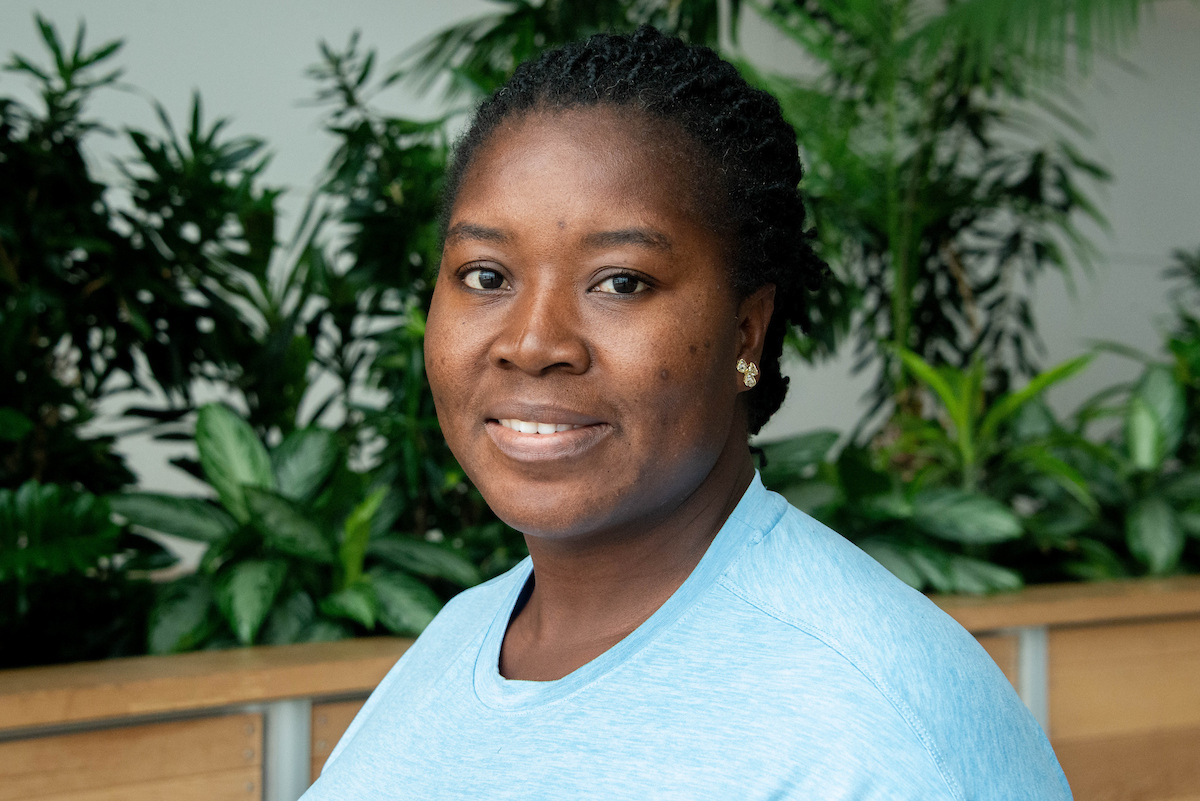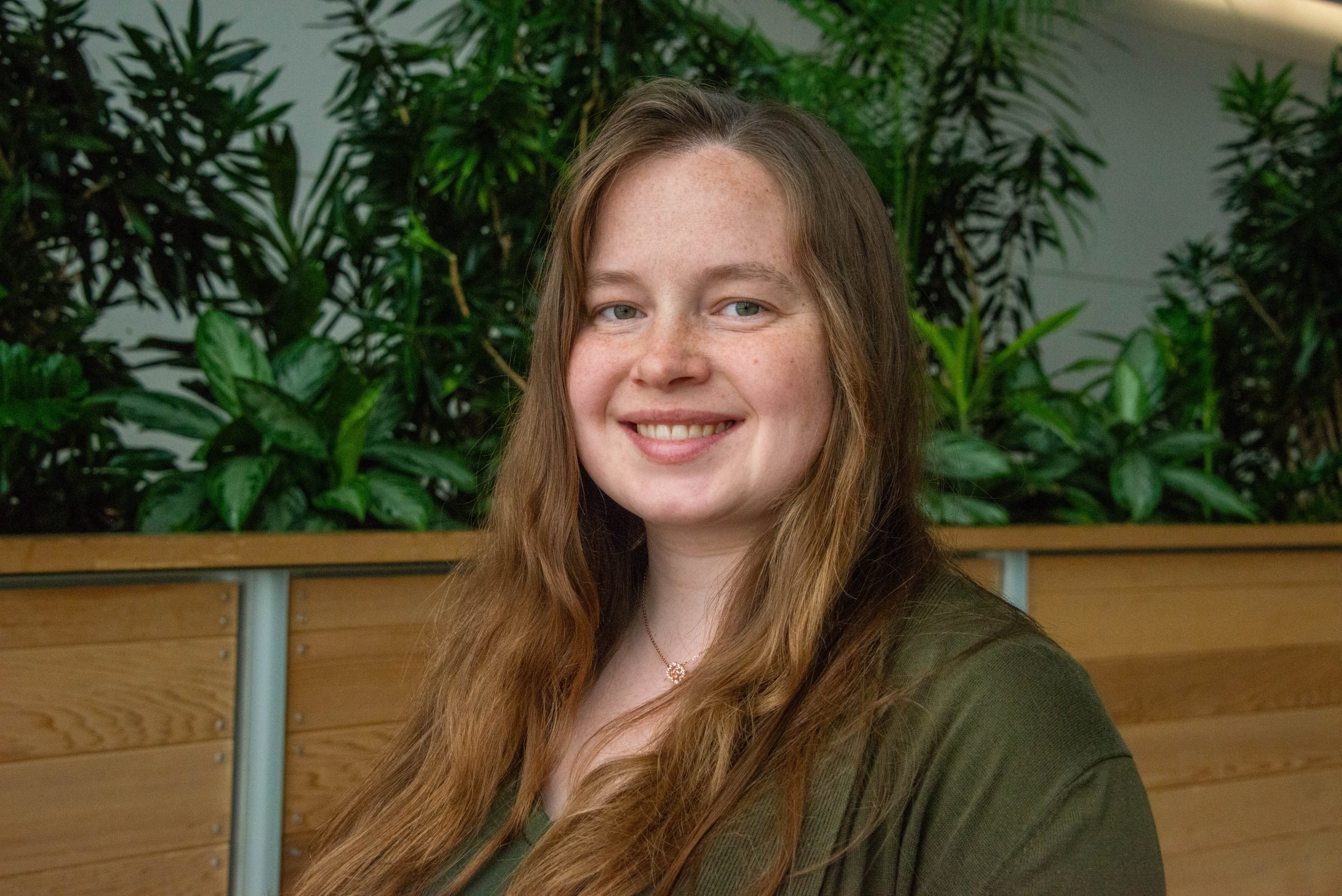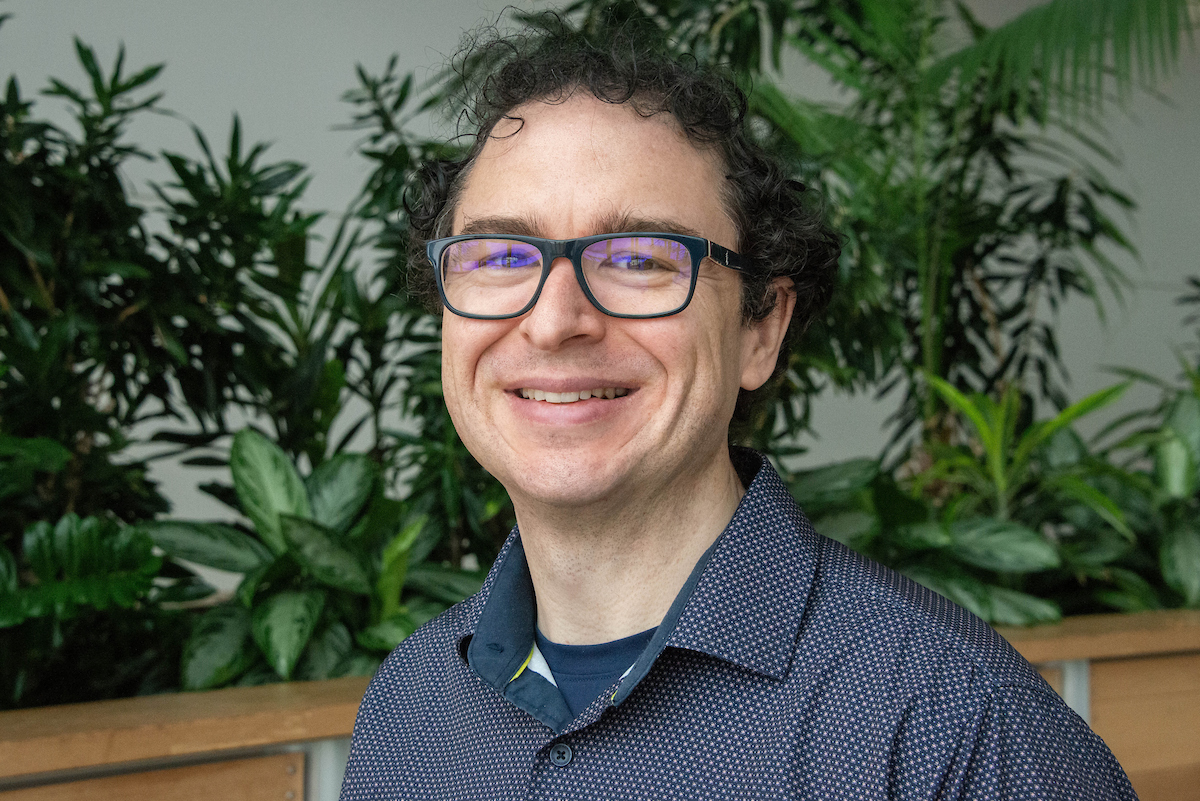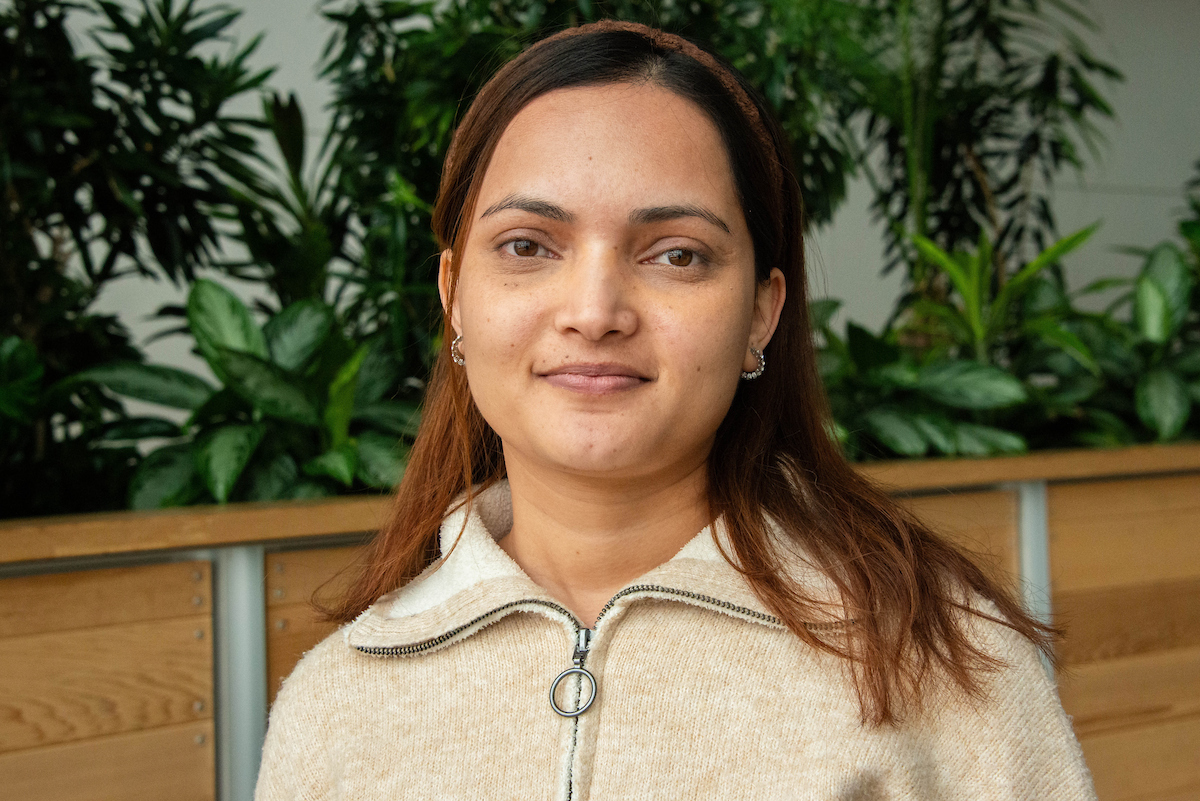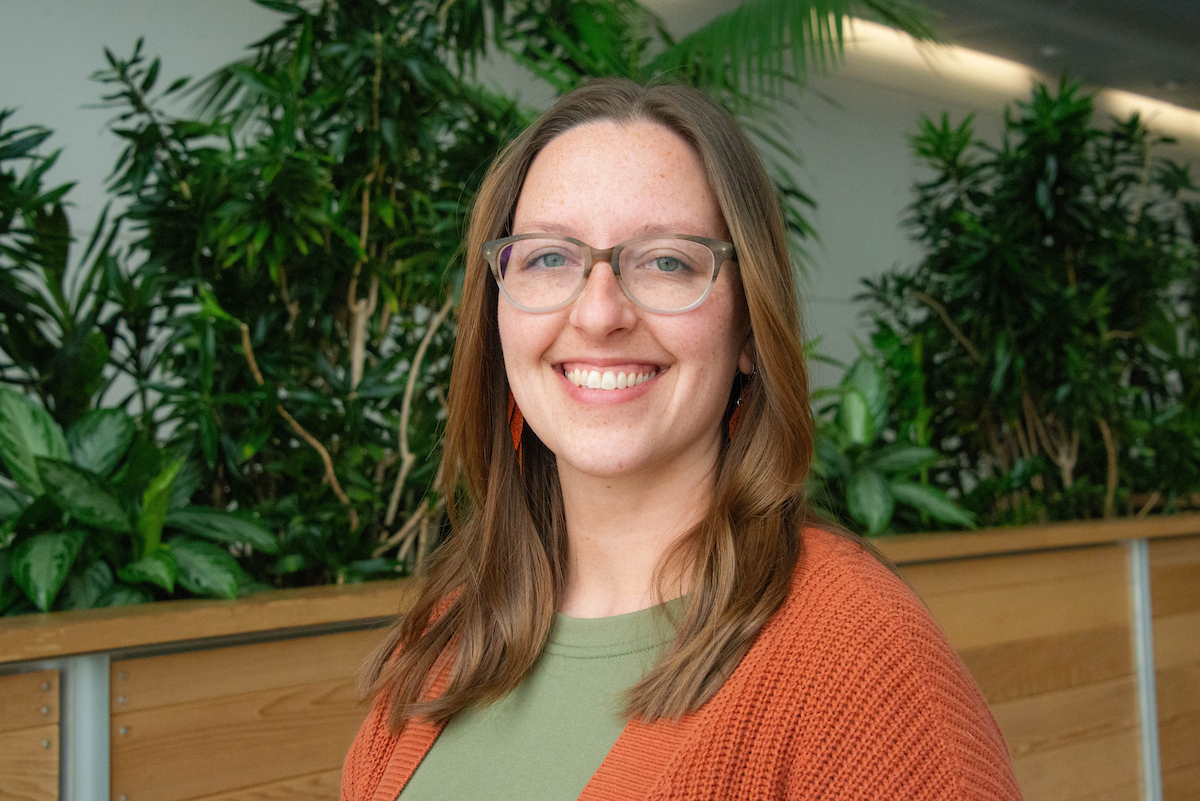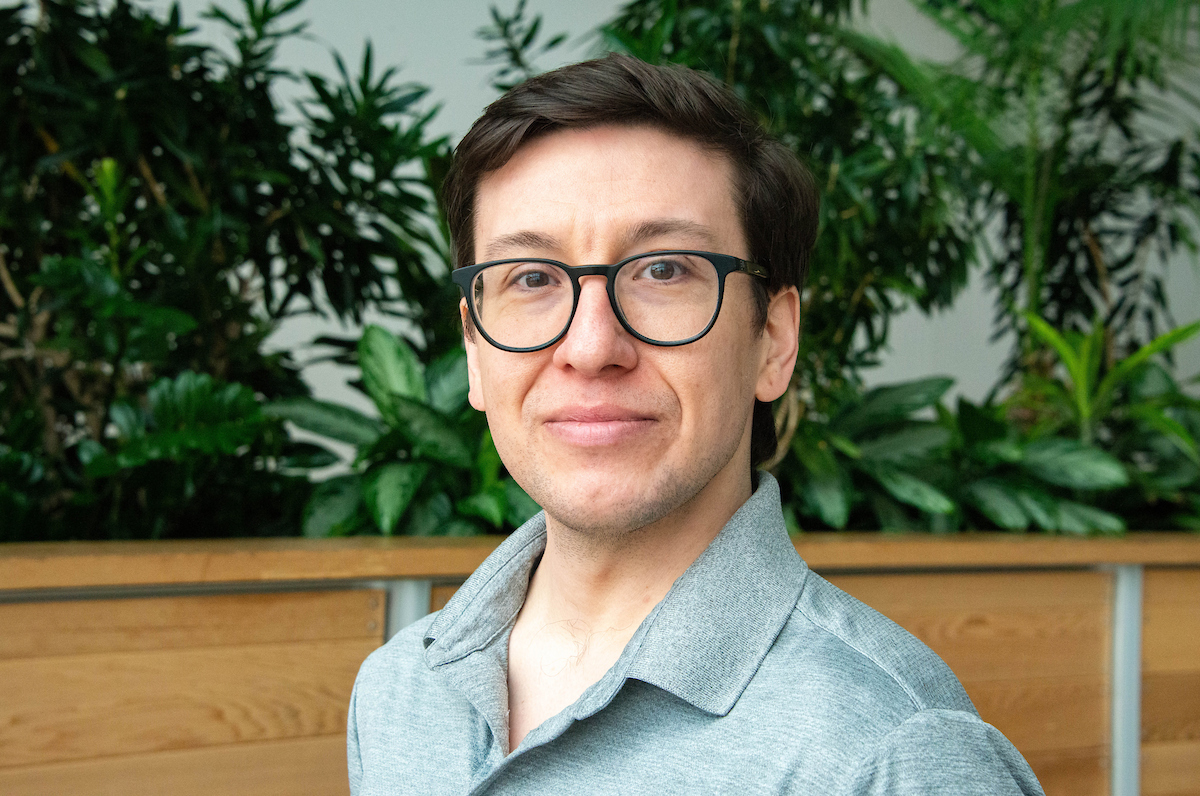Sowing the Seeds
Getu Beyene Duguma has been well-acquainted with plants and their importance for as long as he can remember. Growing up in Ethiopia in a subsistent farming family, he was surrounded by food crops. His parents worked about 2–3 hectares of land, cultivating a diverse range of crops like teff, sorghum, and corn. “My interest in plants was not a mere choice but a necessity,” Getu says. “From my earliest recollections as a child, our lives were intricately tied to the cultivation of these crops for survival.”
For families who depend on farming, there is a nearly endless list of threats that can affect the yield of their crops and, in turn, their livelihoods. From pests and diseases to droughts and floods, the challenges are plentiful.
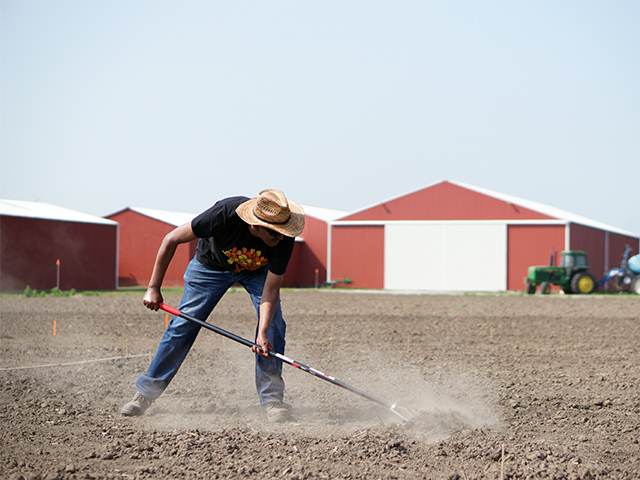
Getu Beyene Duguma, PhD, tills soil at the Danforth Center’s Field Research Site in St. Charles, Missouri.
Getu knew this well when he decided to seek an education in plant biology. “My childhood experiences fueled a dream to enhance the lives of smallholder farming communities through improved crops and modern technologies,” he says. “This aspiration led me to pursue plant sciences at Alemaya University of Agriculture (now called Haramaya University), ultimately specializing in biotechnology to realize my vision.” From there, he went on to work for Corteva Agriscience and has been living out his dream of working on projects focused on trait enhancement in key food security crops ever since.
Making an Impact
Getu has continued to build on his dream here at the Danforth Center, where he has contributed to multinational projects, including virus-resistant and nutritionally enhanced cassava, lodging-resistant teff, and more.
His research focuses on enhancing crop traits to improve and protect harvest and to increase resilience in the face of climate change. Ensuring sustainable and productive yields of key food security crops is crucial for building a brighter future for smallholder farmers in developing countries.
“I take pride in being part of the team at the Danforth Center and contributing to its mission, striving to make a meaningful impact on global agriculture,” Getu says. “With limited resources on our planet shared among 8 billion individuals, sustainable and efficient agricultural practices are imperative. My work addresses the urgent need to feed the impoverished more sustainably in the face of a changing climate.”
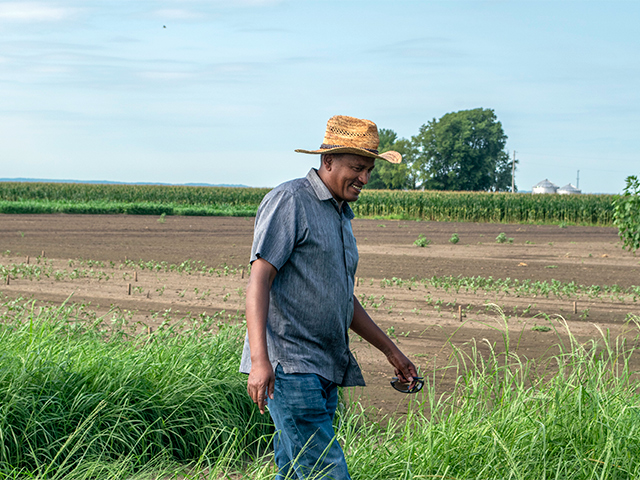
Getu Duguma inspects a plot of teff at the Danforth Center’s Field Research Site in St. Charles, Missouri.
One of Getu’s current research projects is improving key agronomic traits in teff. A major staple food, teff is the main ingredient used to prepare injera, a type of sourdough flatbread that is a daily food for many in Ethiopia and the surrounding region. Getu’s work focuses on lodging resistance and abiotic stress tolerance. Lodging, or the tendency of a tall-standing crop like teff to bend, fall over, and likely break, causes farmers to lose up to 25% of their teff crop every year. Thanks to Getu’s work on a dwarf variety of teff that is shorter and more lodging-resistant, such massive losses may soon be a problem of the past.
Coming Full Circle
For Getu, successes like these are deeply personal. He knows firsthand the benefits that his work will have on farming families.
“I find immense satisfaction in envisioning the potential impact of our research on the livelihoods of smallholder farmers in sub-Saharan Africa,” he says. “The challenges and continuous learning, from discovery research to product delivery, make the journey enjoyable.”
And he is just getting started. He is grateful for the chance to contribute to advancements in agricultural science and looks forward to continuing his journey.


